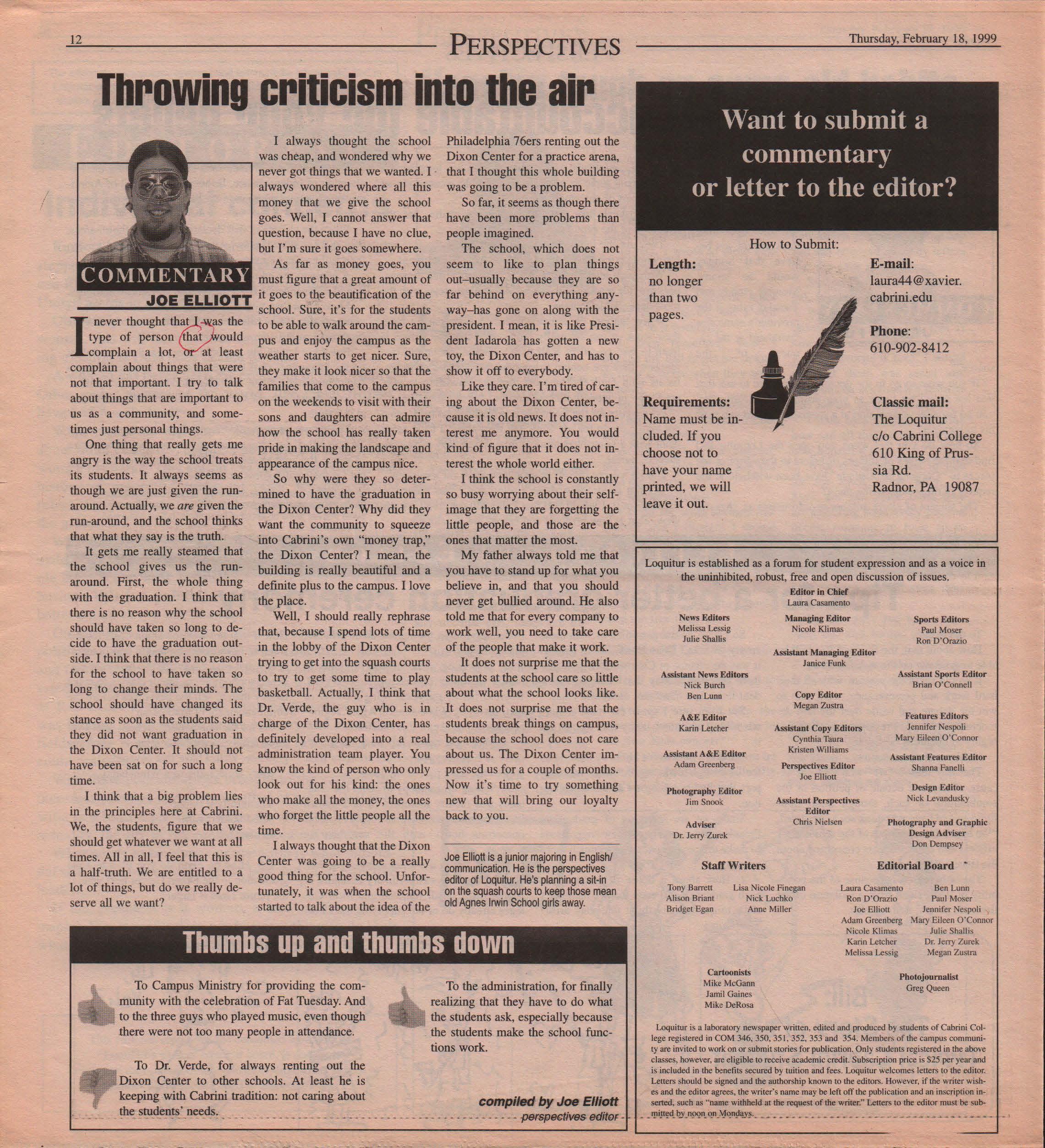
2 minute read
Standupandbeaccountableforyourbeliefs
JANICE FUNK source?"
If you were to open a newspaper to read the weather forecast for the upcoming days, would you believe that Sunday would be sunny, Monday cloudy and Tuesday rainy if the provider's name was "withheld at the request of the
Advertisement
If you were to go to the doctor and he were to ask that you not reveal his name as your primary physician when you go for a second opinion at a specialist, would you trust his judgement?
So how do you feel when you open the Loquitur and find that the names of authors of letters to the editor or the pieces in "Copping an Attitude" have been withheld at the request of those who wrote them?
The subject of citing authors or infonnants as "Anony- mous" or completely withholding names has long been a controversial topic in journalism. Credible sources are an integral part of any story.
Newspapers, like any kind of mass media, are the lifeblood of the century.
They are the omnipresent informant. often the first and last word on what is happening and why it is important.
With such responsibilities, it is imperative that newspapers provide readers with the most complete story, with the most dependable sources.
When authors or sources withhold their names from their work, it can generally be inferred that the author is loath to take credit for their work or views for one of two reasons; they are unable to support their claims or judgements with hard evidence, or they are unwilling to take credit for an unpopular idea, afraid of the repercussions.
As a writer for the Loquitur, it is hard for me to imagine not taking credit for my work, but then again, I have never dealt with a controversial topic, one which may raise conflicts or unrest.
But let me put myself in such a position for a moment.
If I felt so strongly about a topic that I was moved to write about it, I would feel that I should take credit for my view. That is how symbols and heroes are developed.
Letter To The Editor
When Thomas Jefferson took credit for writing the Declaration of Independence, he became a symbol of American freedom and courage in the face of the ultimate opponent.
When the signers of that declaration signed their names, they did not sign "Anonymous." They were proud to sign their full names to guarantee their liberty.
A letter to the editor may not necessarily be a declara- ·tion of independence from the tyranny of Cabrini authority. ~ore often than not, it is a letter from a student who is unhappy with a new rule or a slight on the part of either the newspaper or the administration.
But these letters are important because they remind us on the newspaper staff that the normally lethargic Cabrini community has a pulse. enabling blood to reach the brain. Even more importantly, they are almost self-promotional in nature.
The names printed underneath those letters read like a ·'Who's Who" on campus, not for the number of activities in which the authors are involved, or the sports they play, but for their willingness to take the lead.
JaniceFunkis a sophomoremajoringin English/communication. Sheis theassistantmanagingeditorof Loquitur.Sheoriginally askedthathernamebe leftoffof thiscolumn,butweconvinced herotherwise.








